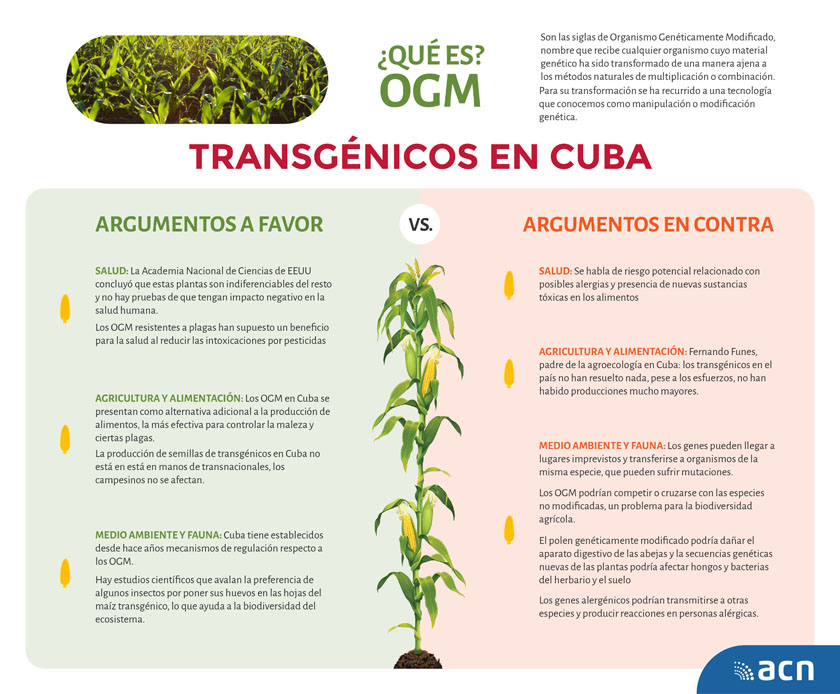
HAVANA, Cuba, Feb 1 (ACN) In the winter planting this year, 500 hectares (ha) of transgenic hybrid corn seed are expected to be produced, Doctor of Science Mario Pablo Estrada Garcia, director of Agricultural Research at the Center for Genetic Engineering and Biotechnology (CIGB), announced.
The experience will allow planting 25,000 hectares of the product in 2022, a considerable extension that would produce more than 125,000 tons of the grain for animal feed, the executive added in an exclusive interview with the Cuban News Agency.
The initiative will favor import substitution because, between soybean and corn, Cuba spends more than 500 million dollars annually to feed farm animals, the researcher explained.
He announced that for the spring planting in 2021, the forecast is to exceed 8,000 hectares of corn and 2,000 hectares of soybean, mainly in the center of the country, and there are also plans to produce soybean in Santiago de Cuba (eastern of the country).
Estrada Garcia pointed out that although in a first phase these genetically modified organisms are destined in the nation for animals, they have the approval to be consumed by humans, since at the international level from the scientific point of view they are considered as safe as those obtained by traditional means.
The expert assured that besides contributing to Cuba's food independence and sustainability, these achievements of biotechnology are more resistant and ecological, because they do not require so many chemicals for their development and avoid some pests, such as the codling moth, one of the most recurrent in the territory.
In the 21st century, food shortages could become the most important problem affecting mankind, said the researcher, noting that in the face of the challenges of climate change and world population growth, agricultural biotechnology becomes a valid option for advancing towards food security and sustainable development.
Sidebar

 Agencia Cubana de Noticias
Líder en información nacional
Agencia Cubana de Noticias
Líder en información nacional








Nos reservamos el derecho de no publicar los comentario que incumplan con las normas de este sitio